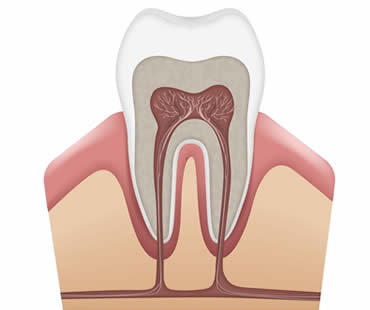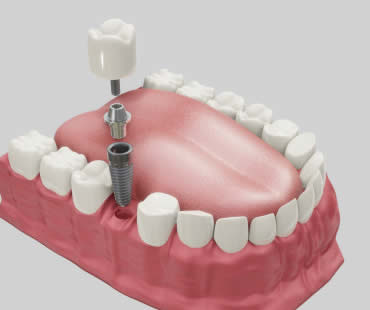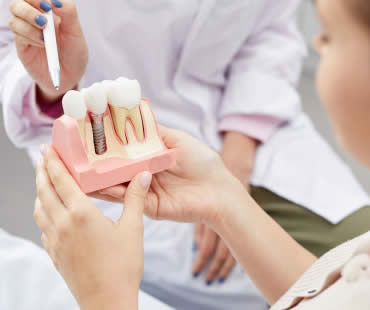
There are many types of cosmetic dental procedures, from teeth whitening to porcelain veneers. While some procedures like veneers require little to no advance preparation, some procedures require more forethought. Make the most of your visit by making the right preparations.
All cosmetic dental procedures should begin with a discussion with your dentist. Your dentist is skilled and experienced. Your dentist best knows your teeth and your dental needs and can give you the advice you need. Some common cosmetic dental procedures and how to prepare for them are explained below.
Teeth whitening: Cleaning your teeth before a tooth whitening treatment will help you achieve better results. If you clean the plaque and tartar off of the tooth surface, the whitening will affect the entire surface of the tooth. Be sure to look at a shade guide before your procedure to establish your existing tooth color and to choose your goal shade. Teeth whitening is not recommended for expectant or nursing mothers, as the effects of the whitening chemicals on unborn children or infants has not been explored.
Oral surgery: Many cosmetic dentistry procedures involve some type of oral surgery. To prepare for your surgery, follow all of the instructions of your surgeon. Make transportation arrangements, as you may not be able to drive. Get your medication in advance, so you will be prepared to take your pain medication or antibiotics immediately following your procedure instead of having to wait and possibly endure pain. Follow all of your pre-op instructions, including any diet restrictions. Plan your recovery diet beforehand, so you will have a variety of healthy, appropriate foods available to you.
Braces: Before braces are applied to your teeth, you will need a full check-up to look for decay or problems with your gums. After application or adjustment, your mouth may be sore. Treat this with over-the-counter anti-inflammatory medications. Because braces may chafe initially against your teeth and gums, have some specialized wax available to place over the bracket to help shield your mouth until your tongue and cheeks adjust.
We look forward to seeing you in our Ottawa dental office

Have you ever wondered if your smile could be brighter? Have you considered teeth whitening, but just aren’t sure if it’s appropriate for you? People are born with different shades of teeth, but over time, other factors can affect the color of the enamel. The color of your teeth may have changed due to the following:
- Pigment-rich food and beverages such as cola, wine, juice, berries, candy, and ketchup are just several examples of foods that may darken your teeth.
- Cigarette smoking and chewing tobacco are known to cause yellowing of teeth.
- Certain medications can result in tooth darkening. These offenders include some antibiotics, high blood pressures medicines, antipsychotic drugs and certain antihistamines.
- Chemotherapy or radiation treatments can cause teeth to change colors.
- Enamel wears away as you age, and teeth acquire a build-up of tartar and stains that darken your teeth.
- Excessive fluoride use either from your water, fluoride supplements, toothpaste or rinses can cause teeth to yellow.
- Trauma caused by a fall or blow to the mouth can damage nerves and cause teeth to permanently brown or blacken.
- Poor oral hygiene or avoiding regular dental care can cause teeth to turn unwelcome colors.
While some of these causes may make whitening more difficult, talk to a qualified dentist in Ottawa about the best option for meeting your whitening goals. The general rule of thumb is for your teeth to closely match the shade of the whites of your eyes. Teeth that are too white will look unnatural, so if you choose professional whitening, you should consult with your dental professional about how to achieve the most natural result. In cooperation with your dentist, making the decision to undergo professional teeth whitening could mean you will soon be facing the world with a brighter, whiter smile.
If you live in the Ottawa area contact us today

Root canal treatment is often a last resort for people who are experiencing tooth pain and want to save their damaged tooth. Although the procedure isn’t nearly as scary or painful as in years past, most patients view the aspect of this treatment with disdain. Recovery from a root canal is often no worse than recovering from a dental filling, but there are some issues that affect your ability to recover from root canal treatment.
Tooth condition
The severity of your tooth’s condition plays a big role in your treatment. If your infection or decay is not too advanced, it may mean an easier recovery than a patient with acute problems requiring extensive root canal treatment. Your dentist will determine the severity of your case and be able to prepare you for what to expect.
Dentist qualifications
Although all dentists are trained to perform root canal treatment, not all of them choose to offer this service as part of their practice. Your dentist may refer you to an endodontist, who is a dentist specializing in root canal treatment. These types of dentists are trained in all aspects of root canals and can handle even the most severe cases. Often, endodontists are so experienced and knowledgeable that they can even help shorten your recovery period after treatment.
After care
No matter which dentist performs your treatment, you should receive detailed instructions about how to care for yourself afterwards. You will be given guidelines about what to eat and what to avoid, how to handle pain, activity restrictions, and other details. There may also be mouth exercises suggested to follow to aid in your recovery. Make sure you keep any follow-up appointments to ensure proper healing.
Our dental office is located in Ottawa

Missing teeth make you unhappy because it’s more difficult to eat and speak without them, as well as leaving gaps in your smile. Luckily dental implants have come to the rescue in modern dentistry. These titanium posts are surgically inserted into your jawbone, where they fuse with the bone to become a permanent part of your body. An artificial tooth is later placed on top of this stable support to complete the restoration.
If your dentist says that you have healthy gums, strong bones, and good enough overall health to undergo the procedure, then dental implants may be a great choice for restoring your smile. If you’re considering this treatment, here are some benefits you can expect to receive:
- Natural appearance
- Durable enough to last a lifetime
- Very high success rate
- Improved speech
- Restored ability to eat naturally
- Improved self-esteem
- Security without concern for slipping
- Choice of materials for the crown such as porcelain or ceramic
- Ability to maintain good dental hygiene with normal brushing and flossing
The chances that you’ll be extremely happy with your dental implant is very good. Most patients rave about the results and their restored function and appearance. It’s easy to keep your implants for a lifetime with good oral hygiene and regular dental checkups. If you have a hole in your smile, ask your dentist if you are a good candidate to enjoy all of the benefits of dental implants.
We look forward to seeing you in our Ottawa dental office

Failure to take good care of your teeth can result in tooth loss, and so can issues like trauma or aging. No matter why you lose a tooth or multiple teeth, you’ll want a secure, comfortable and attractive replacement. Dental implants come to the rescue with all of these benefits and more.
A dental implant involves placing a titanium rod into your jaw to provide a sturdy new root, and then topping it off with an artificial tooth. You’ll end up with a fully functional tooth that works, looks, and feels just like a natural tooth.
There are a number of advantages that dental implants bring:
- prevents movement of neighboring teeth
- does not negatively impact adjacent teeth
- looks aesthetically appealing
- does not slip or move in any way
- provides comfortable fit
- lasts a lifetime with proper care
- requires no special maintenance
Dental implants are inserted surgically while you are under local anesthesia, so you won’t feel anything during the procedure. There may be minor swelling or minimal pain that can be managed by over-the-counter remedies, and those side effects should dissipate within a couple of days. Risks are low and the long-term results are very good. The implant fuses with your body and you won’t even know it’s there once it has healed.
Ongoing care for your dental implant simply involves regular brushing and flossing, and dental checkups to ensure continued good oral health. You should be able to expect your fully restored smile to look and feel great for years to come.
We treat patients from Ottawa and the surrounding area

Over time, daily life can take a toll on your smile. Decay, breakage, disease, and missing teeth can negatively affect your mouth. Restorative dentistry focuses on repairing damage and renewing the integrity of your smile. With today’s advanced technology and high-quality materials, you can enjoy strong, attractive restorations. Don’t put off necessary dental work any longer.
Common restorative procedures include:
Composite fillings
To repair teeth damaged brought on by decay, your dentist will likely choose an all-white filling. Tooth-colored fillings produce solids restorations that blend in with your natural teeth and allow for less removal of healthy tooth structure.
Dental Crowns
When you have a larger area of decay than a regular filling can fix, your dentist may suggest a dental crown. Also called a cap, a dental crown covers the area above the gum line, re-establishing the strength and appearance of the injured tooth. Usually, it takes two visits to receive your custom crown. During the first appointment, your dentist will remove the decay, take impressions for the crown, and fit you with a temporary. You will return for permanent placement a few weeks later.
Dental Implants
If you have lost teeth, your oral health and self-esteem may suffer. Dental implants can replace one or more missing teeth, giving you back a complete smile. Dental implants include a metal post that functions as an artificial tooth root and a prosthetic crown that is cemented on top to complete the restoration.
Porcelain Veneers
Often considered a cosmetic choice, porcelain veneers can also cover chipped or broken teeth. Made from fine dental porcelain, veneers are permanently attached to front teeth, creating a flawless image. Your dentist will select the right veneers to fit your features, personality, and budget.
We treat patients from Ottawa and the surrounding area







